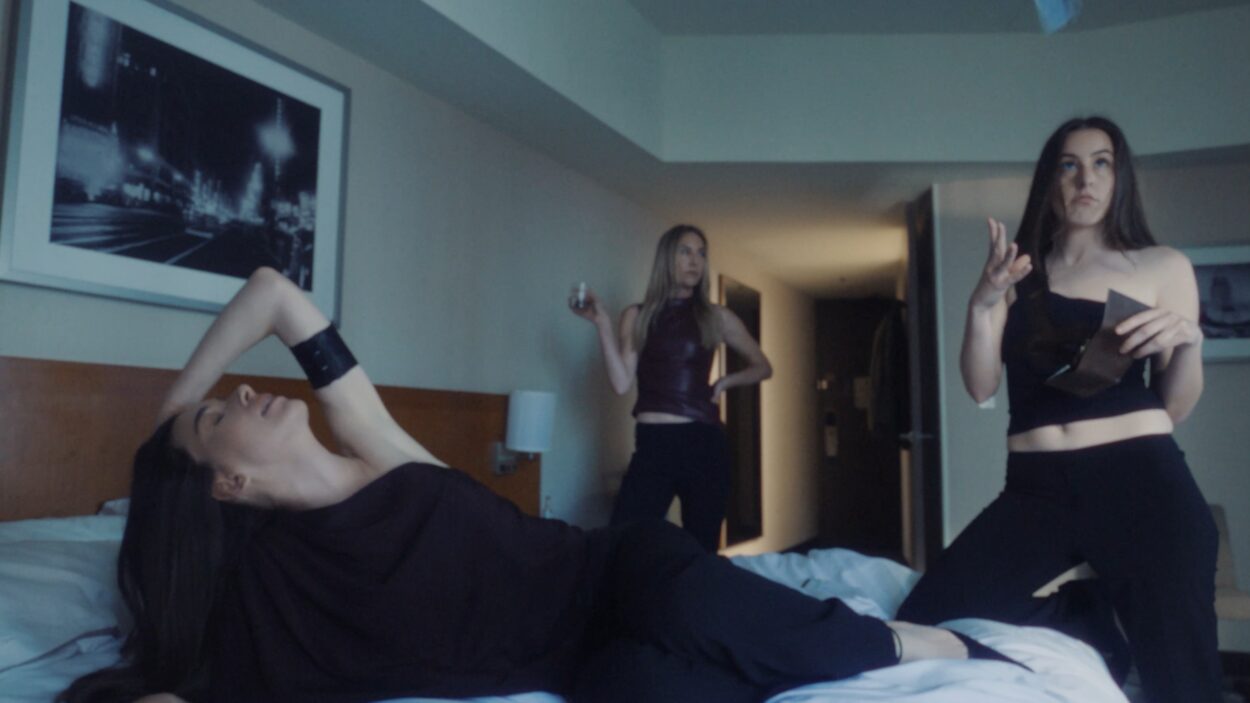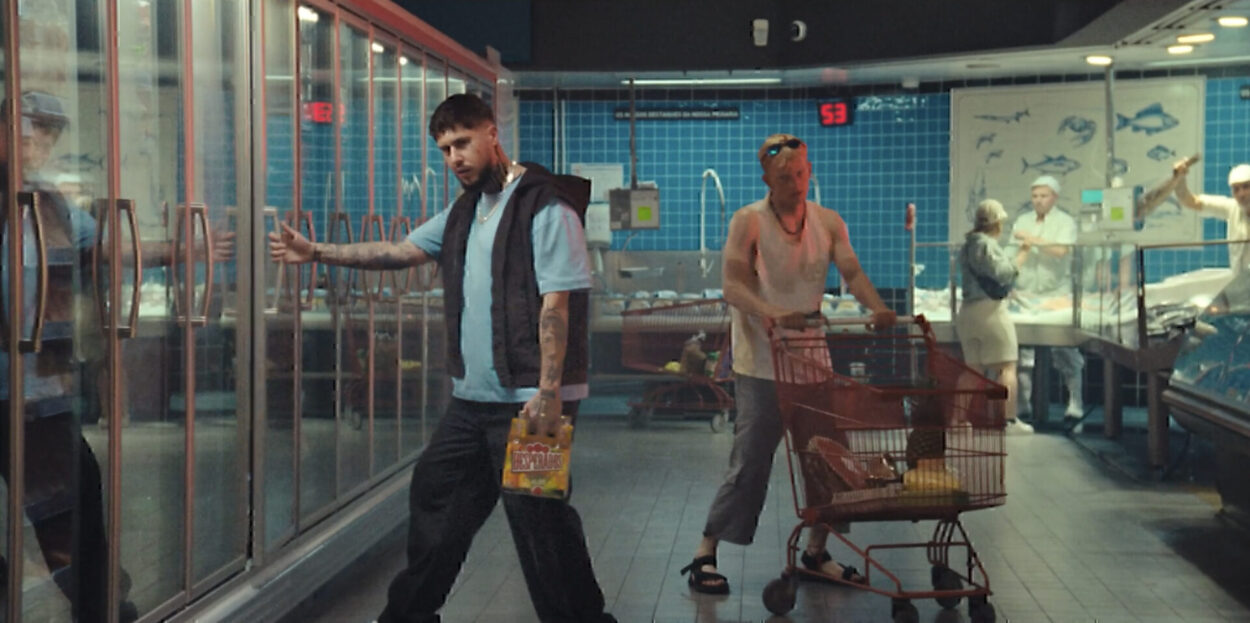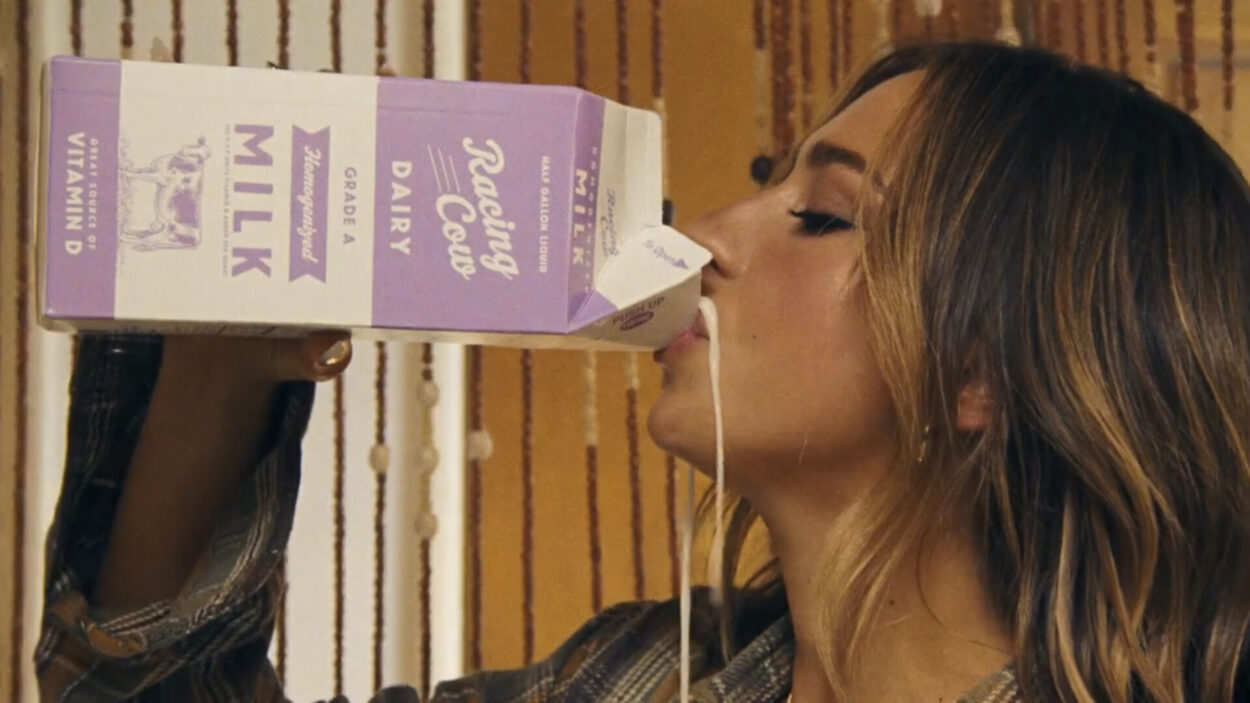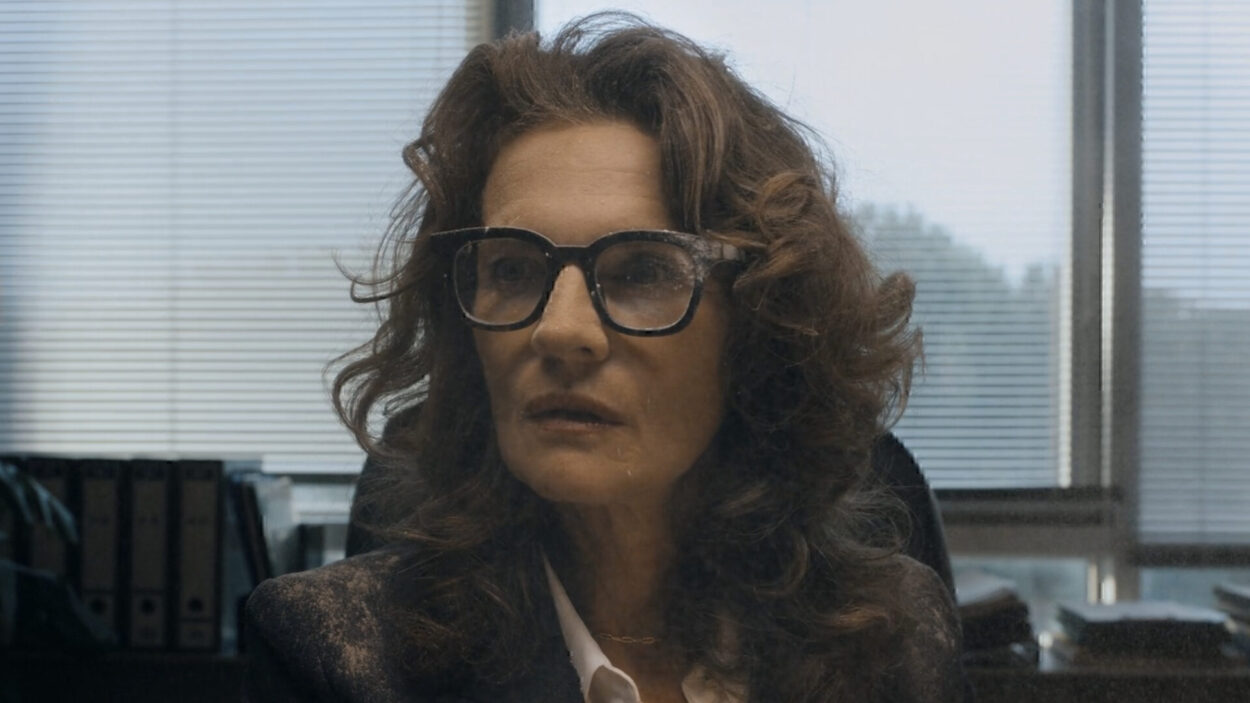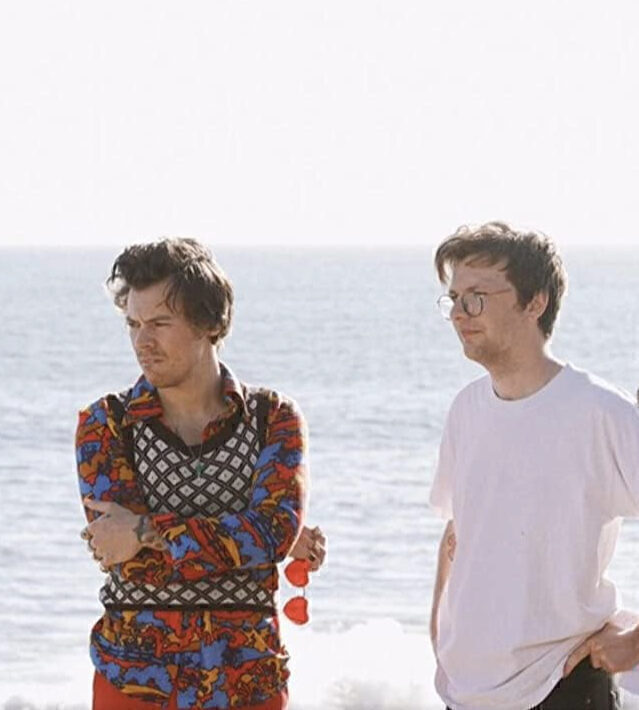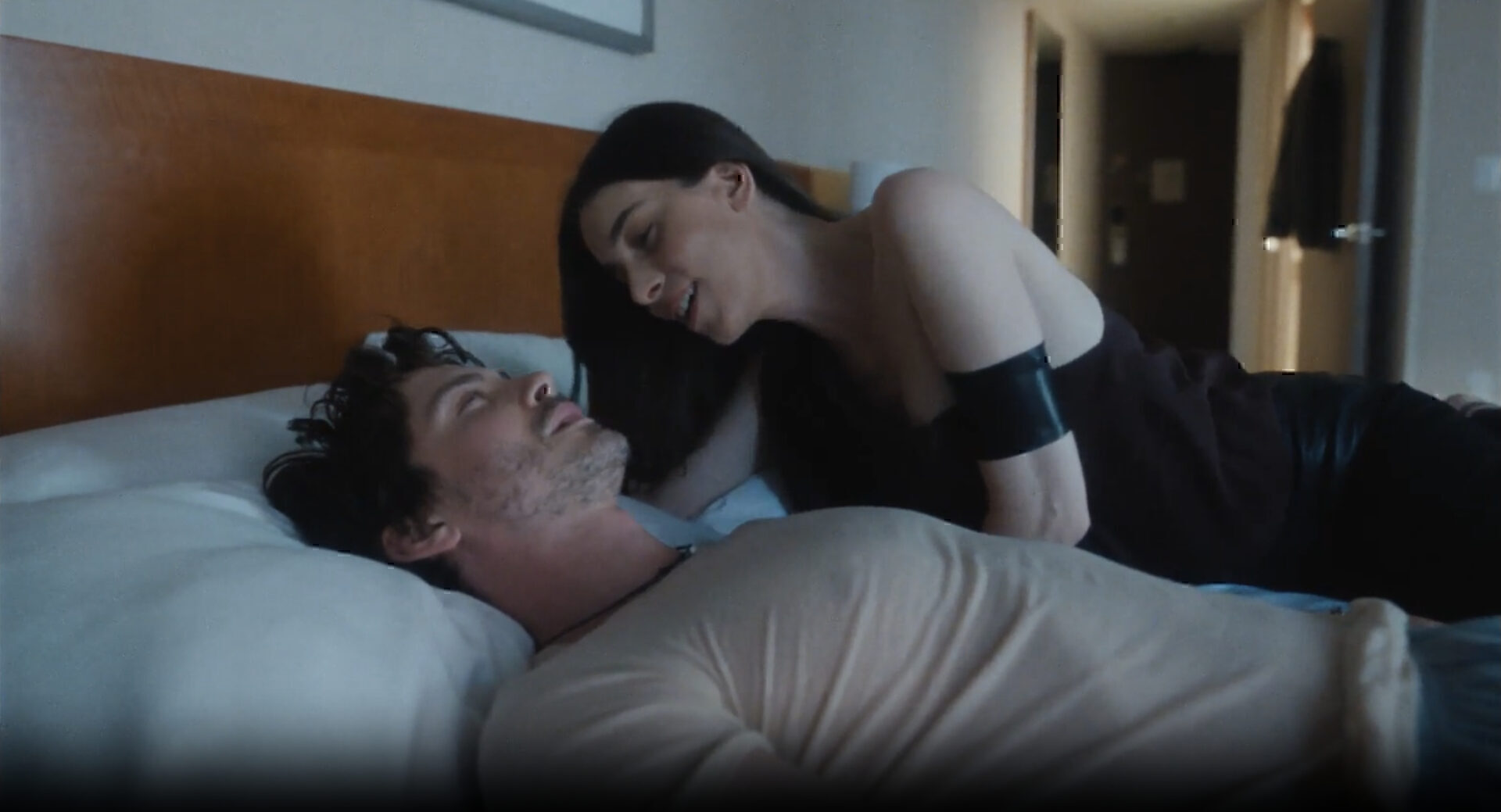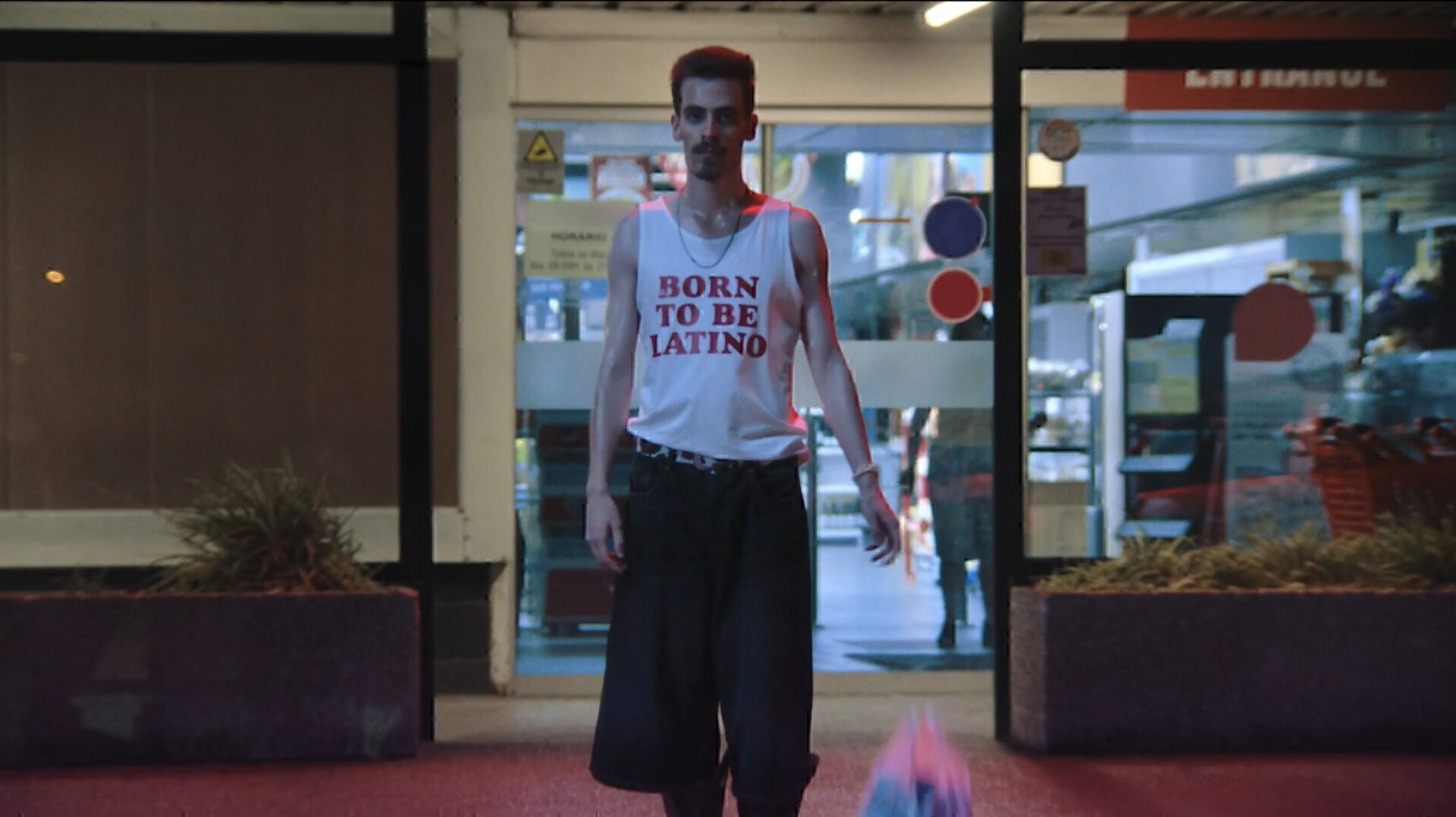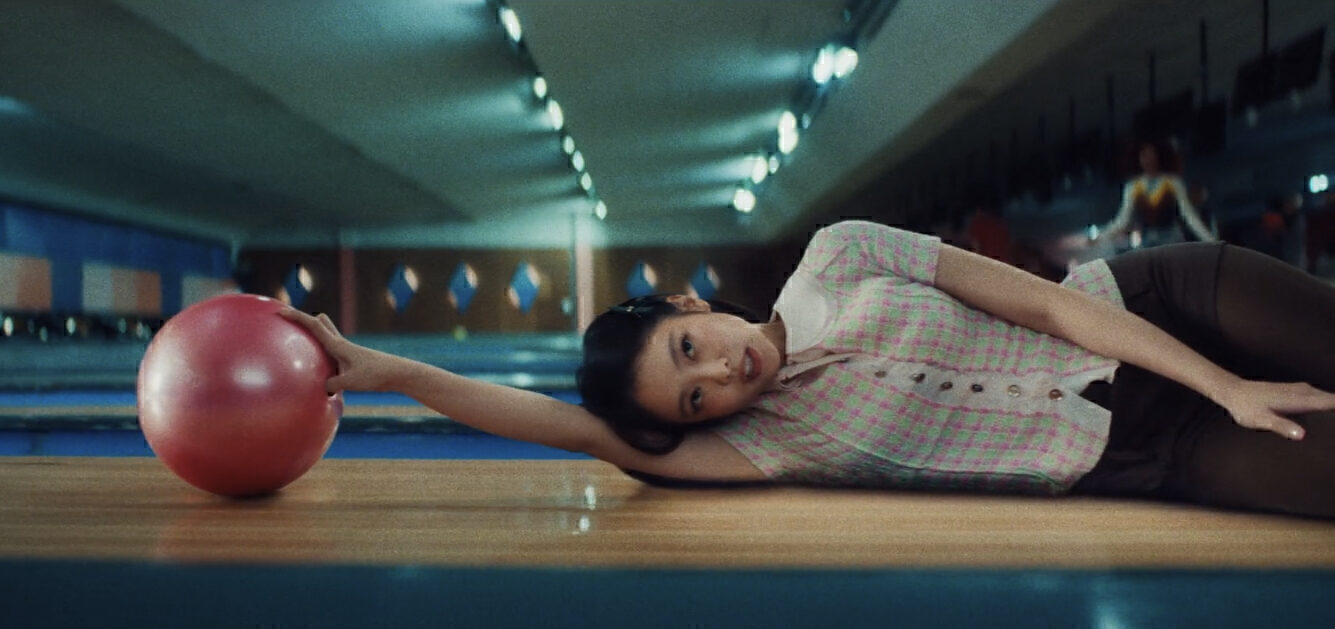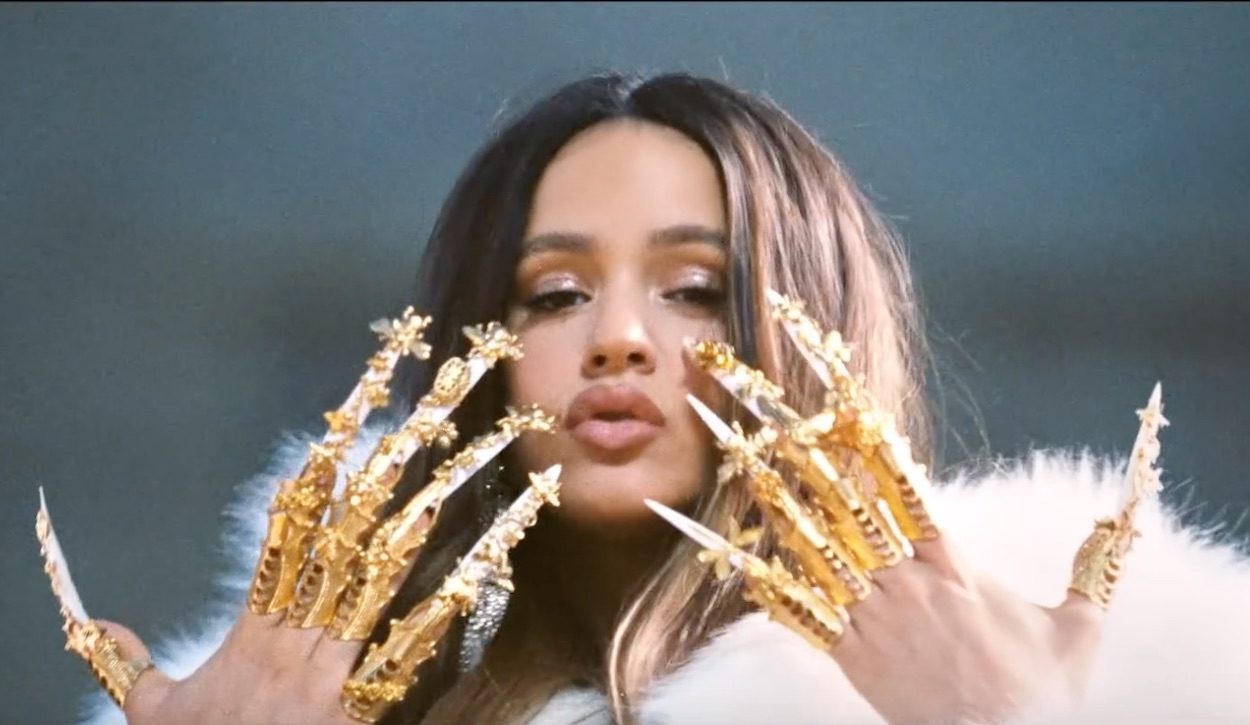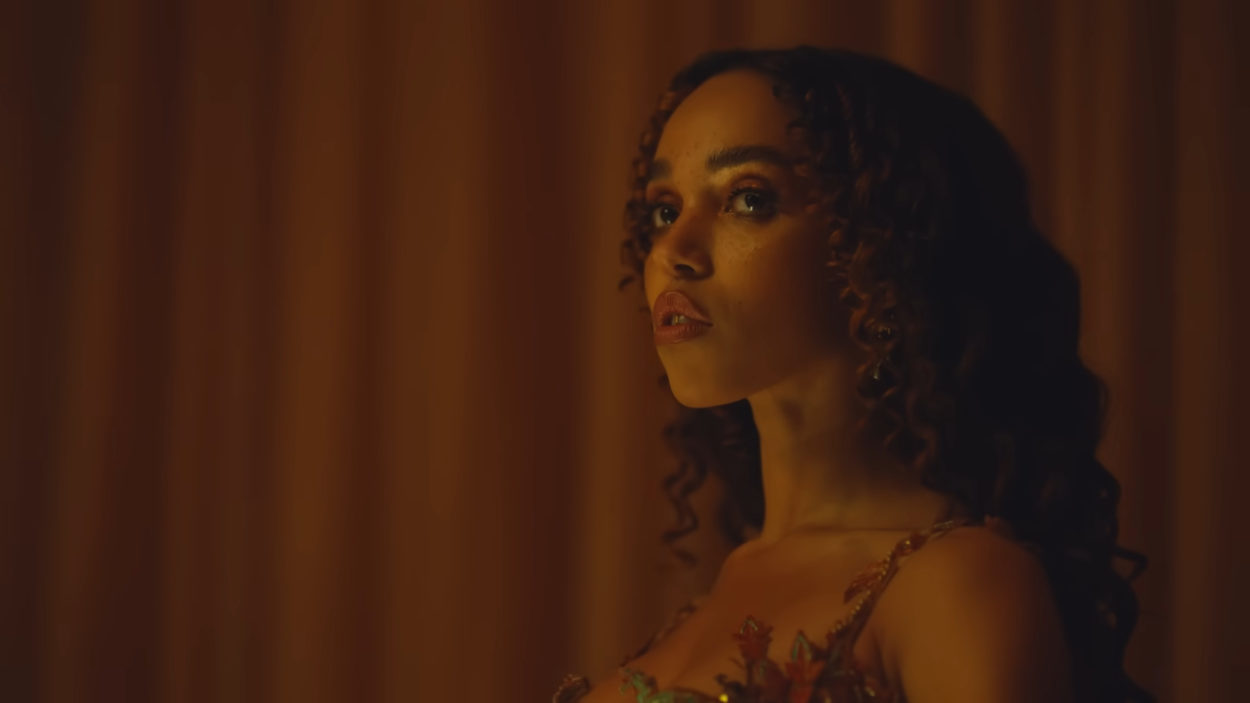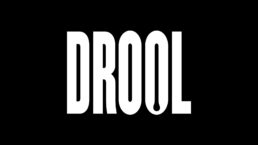Harry Styles & Bradley Bell
Stephen: It’s been a minute since we spoke! Are you guys now fully absorbed into LA? How have you found the move to the Sunshine State? And how has being Brits shaped the way you tap into the cultural zeitgeist over there and bring that unique point of view into your work?
Pablo: Yeah, it’s been about seven years now – maybe a little more – since we moved, and I’d say we’re feeling relatively absorbed. Different levels of absorption on and off. The question of how long we’ll stay does keep coming back around, but we are back and forth to the UK all the time so we get the best of both worlds.
In terms of tapping into the cultural zeitgeist, I mean… on a personal level, we’ve pretty much surrounded ourselves with other Brits. A lot of our friends are British. Especially for our long-form aspirations, being close to where all that stuff is happening has made everything feel a bit more within reach – and that’s exciting.
Bradley: Bradley: Yeah, being British in LA definitely gives us a slightly different point of view. We’re kind of observers of the culture rather than being fully inside it. If you’re born and raised in LA, you might not notice certain things the same way because you don’t have anything to contrast it with.
One of the scripts we’re working on, for example, is heavily influenced by American capitalist ideals and the LA therapy scene – it’s very specific.
Pablo: It’s also interesting coming back to England now – I literally just arrived in London today – and feeling slightly removed from here too. You don’t really belong anywhere, but that gives you this weird, interesting perspective on both cultures.
Bradley: Yeah. Good moment to mention Beachwood, actually.
Pablo: Good call.
Bradley: We’re working on a script called Beachwood, inspired by our time in LA and that suburban lifestyle shock.
In London, you’re constantly interacting with different people. But living in BeachwoodCanyon, it was suddenly this really isolated, suburban experience. People are tied to their homes, and there’s less of a shared public space feeling.
It creates this subtle atmosphere of fear – kind of like a micro-xenophobia.
It [Beachwood] started a story about a group of neighbours coming together to find out who’s behind a series of missing dogs. They think it’s coyotes, but eventually they turn on each other. It becomes a way to unearth all these tiny, simmering neighbourly tensions.
Pablo: And just to add, our proximity to the music industry out here really influenced us too – like during the pandemic when we made the Charli XCX documentary.
Even though we were all locked down, living near each other – and all being English expats – kind of put us in the right place to make that project happen.
Haim – Down To Be Wrong
When we first started working together, we had long conversations about angling you towards a focus on pop music – the practicalities of budgets, your position within that cultural space as creators and filmmakers, career longevity and so on. So it’s been really interesting to follow your trajectory as you’ve scooped up collabs with an enviable roster of artists in that space while managing to evolve and refine your own distinct POV and style at the same time. You’ve moved away from the “glossy” 90s/00s look and built a visual that’s much more raw and unfiltered – can you talk a bit about that shift and the lessons learned?
Bradley: Big question!
First of all, our career really started because people believed in us – and you, Stephen, were definitely one of them.
We had a very conscious path: work with the biggest artists, reach the biggest audiences, get access to the biggest resources. And it worked.
But the flip side is, when you’re making high-budget videos, the stakes are much higher and weirdly, you sometimes have less creative control.
After a few years, we had a very clear conversation: okay, we’ve done enough glossy pop videos. We’ve earned legitimacy. Now let’s get back to our conceptual roots – more narratives, more risks.
And I think our work got way more interesting again around that point.
Pablo: Yeah, initially the glossiness was conceptual because of the artists we were collaborating with – like PC Music.
It was about tapping into pop tropes and amplifying them to this hyperreal level.
But over time, that conceptual layer got stripped away, and it became just a style. Once that happened, it stopped being interesting.
It was exciting at first – it made us feel like “real” directors – but eventually we knew we had to evolve.
Looking at your work to date, would you say there was one specific video or project that was pivotal or transformative to where you’re currently at?
Pablo:I think there are a handful of pivotal moments.
One early one was Vroom Vroom with Charli XCX. And then getting the Migos, Nicki Minaj and Cardi B video really changed the way people looked at us. It was our fourth or fifth music video, but it put us on a different map.
Bradley: Yeah, and more recently, Alone Together, the Charli XCX documentary we made during the pandemic.
It forced us to work in a completely different way – no crews, no control, just piecing together story from what Charli and her housemates (managers) filmed themselves.
It taught us how to be resourceful, how to make decisions purely based on story, not spectacle. That whole story is king mentality has really stuck with us ever since.
Desperados – Guao Guao
Alongside the promos, you’ve done a docu-feature with Charli XCX and a scripted series for Balmain. How does your collaboration differ on those sorts of projects compared with promo work?
Bradley: It’s not that different, honestly.
The only major change is that often, with long-form or scripted projects, we’re not starting entirely from scratch – there’s already a script or a basic concept.
Whereas with music videos, we often have to generate the idea completely.
But the way we work together, the way we bounce ideas and build creatively – it’s the same.
Pablo: Yeah, exactly. The creative process is fundamentally the same – we just tweak depending on the format.
It feels like you’ve made a seamless transition into commercials – how have you found that creative process compared with promos? How does directing acting in commercials differ from directing performance in promos – or are they two sides of the same coin?
Bradley: Honestly, it’s completely different.
In big pop music videos, you’re not really “directing” a performance in the way you would with an actor.
Artists are usually just playing themselves.
In commercials, you’re actually working with actors playing characters – which means you can really direct performance, build backstory, shape tone.
It’s a totally different relationship, and it’s something we’ve gotten way more excited about.
Pablo: And with commercials, you can have a lot of fun with casting – which is huge.
You’re trying to find someone who brings something extra that you couldn’t manufacture yourself.
That dynamic often doesn’t exist in music videos the same way when it’s an artist lead video..
Jennie, Love Hangover
One thing I noticed about your recent work is this subtle yet deliberate humour – the new Desperados project or your promo for Jennie, for example. Is that something you’re keen to explore more?
Pablo: Definitely.
It’s not broad comedy, but there’s always been a little wink in our work – a quiet, deadpan humour that sneaks in if the tone allows for it.
I think even in the early days, there was always this potential to slightly laugh at ourselves.
Bradley: Yeah, even with QT – there was a wink there. It’s niche, but it’s there.
We’re comfortable using humour to create emotional texture.
For example, Jennie is ultimately about a toxic relationship – but telling it through an over-the-top, winked tone made the story resonate more.
Is there something you look for when choosing which artists to collaborate with or treat on?
Pablo: It’s a combination of the artist and the song.
We gravitate toward artists who aren’t afraid to go outside themselves – to have fun, take risks, play characters.
And the song itself needs to trigger something visually. If it doesn’t, it’s a painful process trying to force ideas out.
Bradley: Yeah, and sometimes we have back-pocket ideas we’re excited about – just waiting for the right song to spark them into life.
Are you working on anything else at the moment that we should be keeping an eye out for? Or what would you like to be working on next?
Bradley: Features are the big goal.
We’ve got two scripts we’re developing, and one we’re currently casting.
We’re also excited about continuing to evolve in commercials and music videos too.
Pablo: We’ve got a Heineken commercial dropping later this year that we’re really proud of.
Otherwise, just staying heads down – writing, building, evolving.
